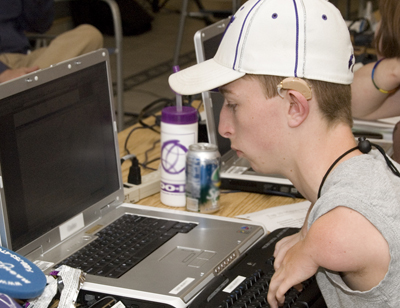

The National Labor Relations Board, or NLRB, enforces the NLRA and has concluded that surveillance of employees who are engaged in concerted activity can be an unfair labor practice. The National Labor Relations Act (NLRA) protects the right of employees to collectively bargain. Other Laws Potentially Applicable to Employment Monitoring Connecticut and Delaware are two such states with specific laws on the books, although Connecticut’s law might not apply when the employee is working from home. When it comes to certain types of employee activity, a few states make it more difficult for the employer to monitor employees.įor example, some states, like Maryland, Illinois and California have “all-consent” or “two-party consent” laws that require everyone involved in an electronic communication or telephone call to consent to the monitoring.Ī few states require employers to give notice to employees before monitoring can take place. However, employees in some states may have slightly more employee privacy protections.Įmployee Monitoring Pursuant to State Law In many respects, the ECPA is definitely behind the times due to advances in technology. Third, for the most part, the SCA does not protect the privacy of stored information if the information exists on the employer’s own servers or equipment.įourth, the ECPA is silent as to many forms of employment monitoring, such as keystroke logging. Employers may monitor their employees’ communication if they obtain the consent of the employee. Pen registers and trap or trace devices do not record the substance of the communication, but they do record identifying information, such as the number dialed or from where a telephone call originated.Īt first glance, it appears as if the ECPA would prevent some forms of employer monitoring, but the ECPA has some notable exceptions and caveats as they apply to the employment context.įirst, there is the business use exception, which allows employers to monitor the oral and electronic communication of employees as long as the employer has a legitimate business reason for doing so. Title III of the ECPA covers pen registers and trap/trace devices. As the name implies, it exists to maintain the privacy of stored electronic information. Title II of the ECPA is more commonly referred to as the Stored Communications Act (SCA). It makes it illegal to intentionally intercept, use, disclose or otherwise obtain any wire, oral or electronic communication.

Title I of the ECPA is also known as the Wiretap Act. The main federal law that potentially covers employment monitoring is the Electronic Communications Privacy Act of 1986 (ECPA). A good example is a company’s BOYD (bring-your-own-device) policy which will often allow employers a certain level of access to what an employee does on their personal device.Įmployee Monitoring Pursuant to Federal Law If you’re on your own device and using your own Internet connection, it’s less likely to be legal if your employer monitors you, although it still is often perfectly legal.Īlso, it’s probably going to be legal if your employer has your permission or otherwise gives you notice of the monitoring. That’s some pretty invasive stuff so it’s sometimes hard to believe that it’s mostly legal.Īs a general rule, when using your employer’s equipment while on your employer’s network, your employer will have the right to monitor what you do.
#People who use computers at work software

Noting which employees access what files and when.In the Internet age, with the ubiquity of laptops, tablets and smartphones, what the employer can do has gone up a notch.ĭepending on the device and motivation of the employer, employees can expect employers to monitor them by: How Do Employers Monitor Their Employees?Įmployers have been monitoring employees since the dawn of the employer-employee relationship. This is likely one of the biggest reasons employers monitor their employees, especially with the rise in the number of people working from home. Finally, we have the employer who wants to ensure productivity levels.


 0 kommentar(er)
0 kommentar(er)
